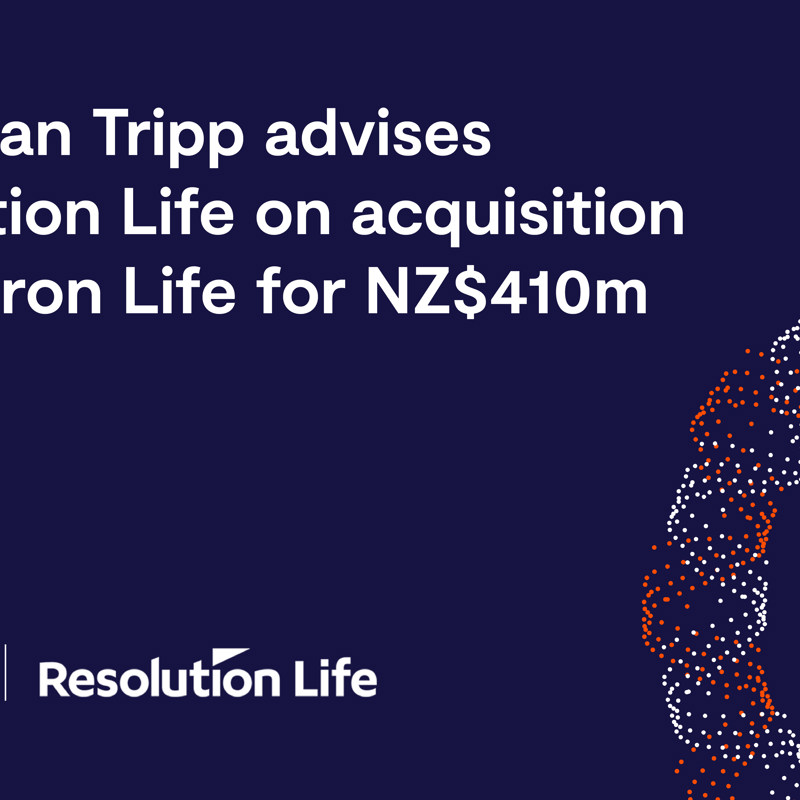Contents
KiwiSaver investors should have the option to benefit from an asset class that can deliver long-term value
This is a joint press release on behalf of the Centre for Sustainable Finance: Toitū Tahua, Chapman Tripp and MinterEllisonRuddWatts.
The Centre for Sustainable Finance (CSF) has published the joint legal opinion it commissioned from leading law firms, Chapman Tripp and MinterEllisonRuddWatts, which identifies key legal and regulatory disincentives that discourage KiwiSaver providers from investing in private assets.
This may mean that New Zealanders aren’t benefiting from investment options that can provide potentially higher financial returns and may also bring long-term positive environmental, social, and economic outcomes.
The opinion outlines proposed legislative and regulatory amendments that would help remove some of those disincentives. It builds on the Investing in Private Assets Recommendations paper published by CSF last year, which called for policy certainty (among other recommendations) for KiwiSaver investment managers, including improving their capacity and capability for investing in private assets.
Less than 2% of the $97 billion in total value of KiwiSaver funds in New Zealand is invested in unlisted shares, far less than retirement savings scheme providers in other jurisdictions and out of step with leading investors globally, which typically invest in a diverse range of asset classes. By comparison, 18% of Australian superfunds are invested in private assets.1 The majority of KiwiSaver investors have long investment horizons (20 years +), but they have little option to take advantage of their long investment horizon by way of investing in private markets.
A number of KiwiSaver investment managers already invest in private assets. While there is no explicit legal barrier to this activity, the opinion identifies three points that actively discourage providers:
- The need for sufficient liquidity to meet account portability obligations and member withdrawal entitlements;
- The requirement for daily pricing of assets; and
- Lack of clarity around the requirement for fees not to be “unreasonable.”
The proposed changes outlined in the opinion include tackling “liquidity bias” by enabling investors to opt out of account portability and early withdrawal entitlements, allowing for the creation of “private asset” funds with long term investment horizons; establishing a more efficient means of accommodating and adopting long-term asset valuation methodologies into KiwiSaver scheme trust deeds; and greater FMA recognition that higher fees are legitimately associated with private assets including clarification of the requirement that those fees not be “unreasonable.”
CSF published its Investing in Private Assets Recommendations Paper in May 2023 by an investor-led technical working comprised of CSF partners ANZ, ASB, BNZ, as well as Harbour Asset Management, Milford Asset Management, Te Rūnanga o Ngāi Tahu, NZ Growth Capital Partners, Pathfinder, Tauhara North No.2 Trust and Foundation North. PWC provided the secretariat to the group. PWC provided the secretariat to the group.
The paper recognised it’s not just policy and regulation that is preventing KiwiSaver investments flowing to private assets, KiwiSaver providers also have a significant role to play.
The key barriers and challenges identified by the technical working group are:
- Policy certainty and regulatory clarity
- KiwiSaver managers' capacity and capability
- Organisational and market challenges posed by private assets
- KiwiSaver members’ expectation and financial literacy
Bridget Coates, Chair of the Centre for Sustainable Finance, says the overall objective of this work is bringing better long-term value to KiwiSaver members while helping to contribute to the depth of New Zealand capital markets.
Leading investors globally see the value of private asset investments as part of diversified portfolios. Both the government and KiwiSaver providers can take further action to ensure KiwiSaver members benefit from a greater range of options than they currently have.
“The legal opinion highlights legal impediments, but it also points out there are no specific legal barriers. In fact, several KiwiSaver providers are already providing these options to their members.”
“This is about creating investment opportunities while mobilising private capital to help build a more resilient and sustainable future for all New Zealanders,” says Coates.
Lloyd Kavanagh, co-author of the legal opinion and Senior Partner at MinterEllisonRuddWatts, says “at a time when New Zealand needs large amounts of capital to build sustainable infrastructure, it seems unfortunate that some of the KiwiSaver regulatory settings are having the unintended consequence of discouraging some providers from investing in private assets. As a result, New Zealand trails well behind other countries, such as Australia, both in the proportion of retirement savings invested in private assets, and the returns earned by those retirement savings.”
Modifying the legal and regulatory environment to reduce those disincentives would serve a dual purpose of delivering better long-term value to KiwiSaver members and providing local capital to build much-needed infrastructure – especially to meet the risks and opportunities presented by climate change.
Tim Williams, co-author of the legal opinion and Partner at Chapman Tripp, says the current KiwiSaver framework reduces investor choice through its transfer and withdrawal settings, which discourage private asset investment options by requiring all investors’ funds be available at any time to meet transfer and permitted withdrawals. Customers are currently unable to elect to commit their funds be held without transfer or early withdrawal options to access long term investments for greater diversification, to seek better potential returns or to meet their alternative investment preferences.
Private asset investment won’t suit every investor, nor will it necessarily be something all KiwiSaver providers offer, but some investment choices present in the broader New Zealand financial markets, and internationally, are not being provided through current KiwiSaver scheme options, narrowing the risk and return diversification choice available in the KiwiSaver scheme universe, including the opportunity to provide needed capital for New Zealand’s development. It is worthwhile exploring why this is, and whether improvements can be made.
MinterEllisonRuddWatts and Chapman Tripp are both partners of the Centre for Sustainable Finance, and the legal teams from the two firms who prepared the joint legal opinion included Claire Brabant (MinterEllisonRuddWatts) and Emma Dale (Chapman Tripp), as well as Lloyd Kavanagh and Tim Williams.
1. APRA June quarter 2023.




































































































































































